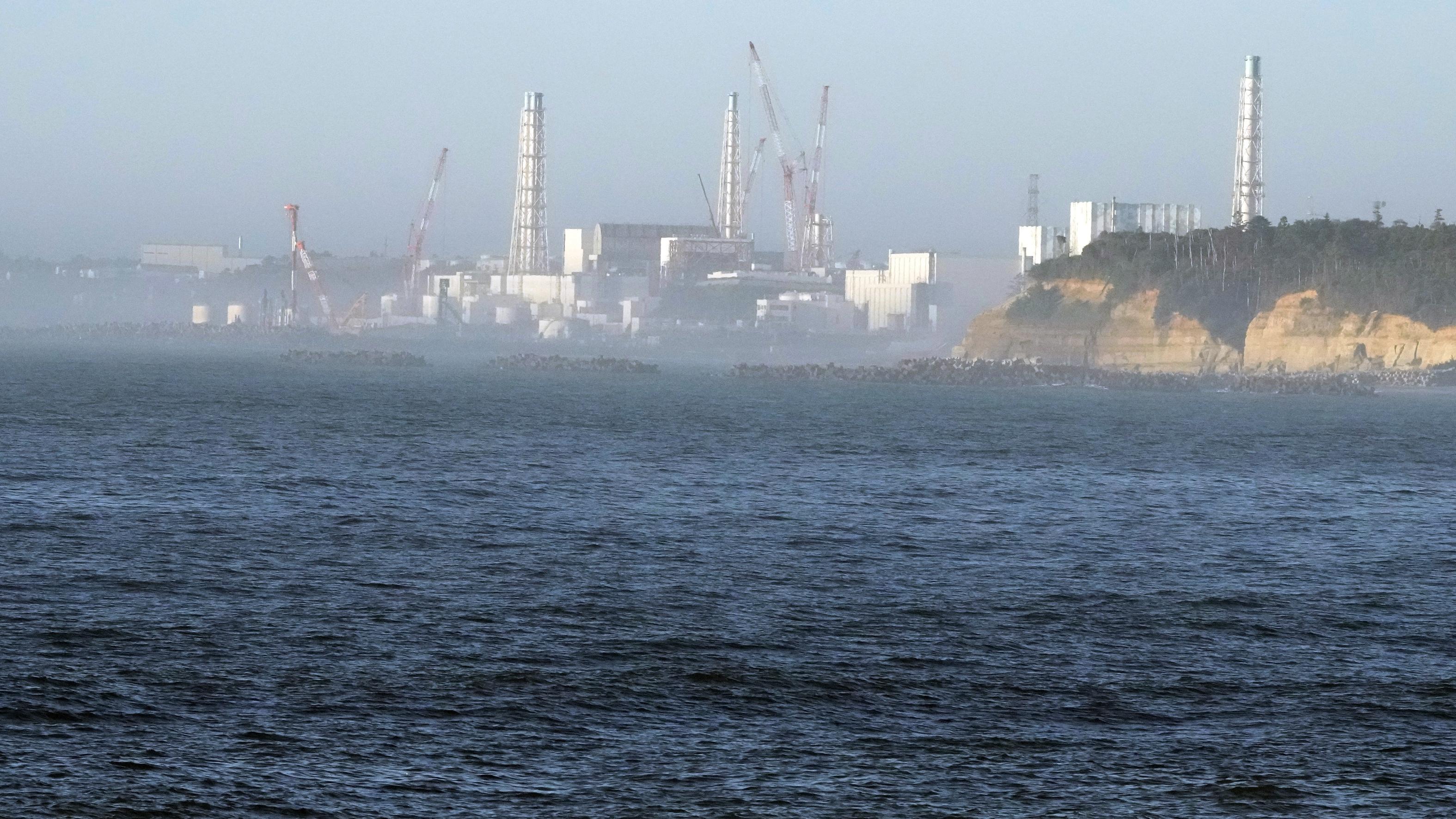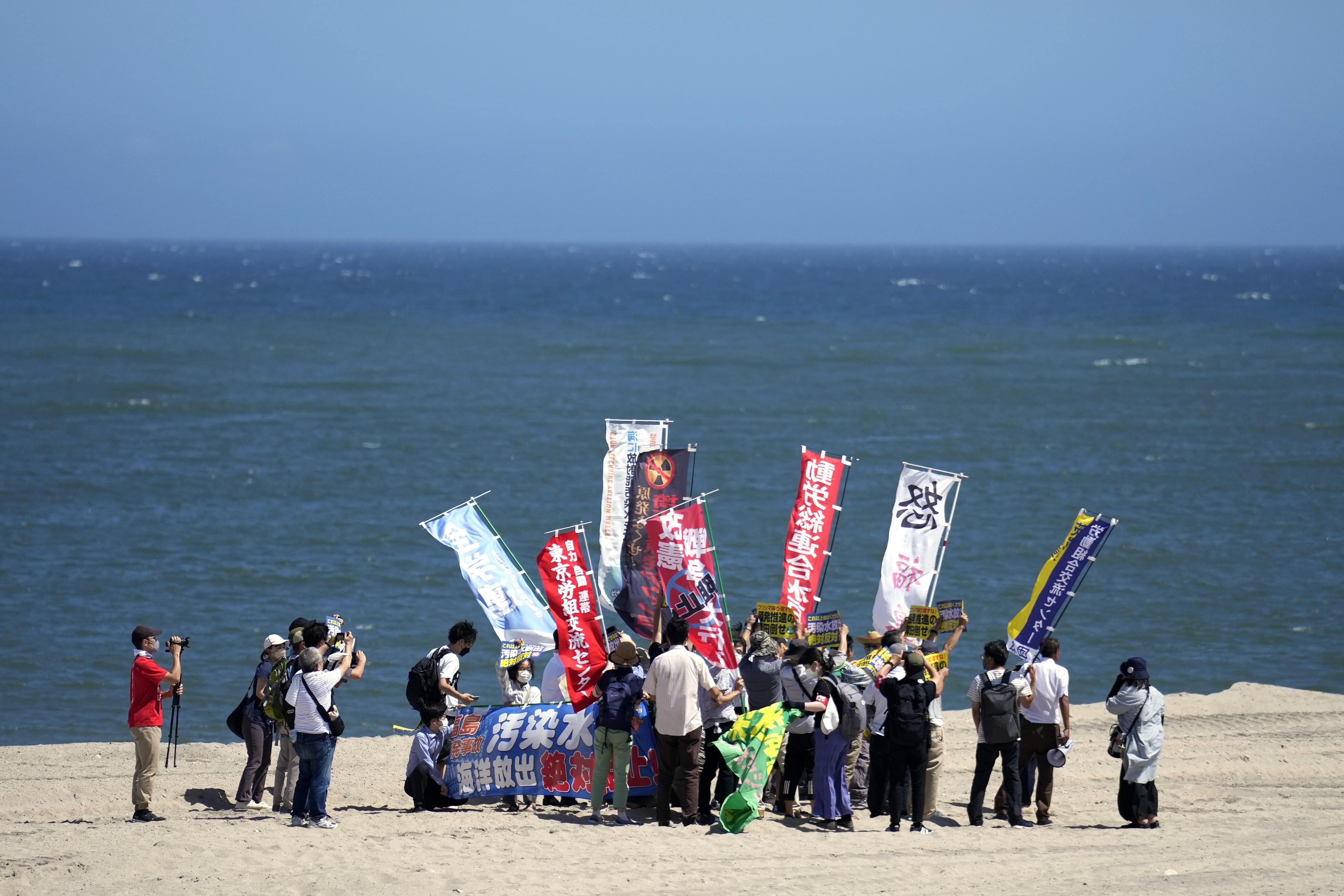 The Fukushima Daiichi nuclear power plant, damaged by a massive March 11, 2011, earthquake and tsunami, is seen from the nearby Ukedo fishing port in Namie town, northeastern Japan, on Aug 24, 2023. (PHOTO / AP)
The Fukushima Daiichi nuclear power plant, damaged by a massive March 11, 2011, earthquake and tsunami, is seen from the nearby Ukedo fishing port in Namie town, northeastern Japan, on Aug 24, 2023. (PHOTO / AP)
HONG KONG – The Hong Kong Special Administrative Region government has expressed concern over news reports on the leakage of nuclear-contaminated water in Japan's Fukushima Daiichi Nuclear Power Station.
In a statement issued on Wednesday night, the SAR government immediately sought verification of the reported leakage and further information from the Consulate-General of Japan in the city.
READ MORE: 5.5 tons of radioactive water leaked from Fukushima plant
Responding to the Japanese government's earlier decision to discharge nuclear-contaminated water at the power station into the sea, the director of Food and Environmental Hygiene issued an order prohibiting all aquatic products, sea salt, and seaweed originating from the 10 metropolis/prefectures from being imported into and supplied in Hong Kong.
The HKSAR government banned the import of all vegetables, fruits, milk, milk beverages, and dried milk originating from Fukushima into Hong Kong
The 10 places are: Tokyo, Fukushima, Ibaraki, Miyagi, Chiba, Gunma, Tochigi, Niigata, Nagano, and Saitama.
The government banned the import of all vegetables, fruits, milk, milk beverages, and dried milk originating from Fukushima into Hong Kong.
Meanwhile, such foods originating from four prefectures near Fukushima – Ibaraki, Tochigi, Chiba, and Gunma – can be imported on the condition that they come with a radiation certificate and an exporter certificate issued by the Japanese authority, the government statement added.
 In this Aug 24, 2023 photo, people protest at a beach toward the Fukushima Daiichi nuclear power plant, damaged by a massive March 11, 2011 earthquake and tsunami, in Namie town, northeastern Japan. Fishing communities in Fukushima fear devastating damage to their businesses from the plant’s ongoing discharge of treated radioactive wastewater into the sea. (PHOTO / AP)
In this Aug 24, 2023 photo, people protest at a beach toward the Fukushima Daiichi nuclear power plant, damaged by a massive March 11, 2011 earthquake and tsunami, in Namie town, northeastern Japan. Fishing communities in Fukushima fear devastating damage to their businesses from the plant’s ongoing discharge of treated radioactive wastewater into the sea. (PHOTO / AP)
Chilled or frozen game, meat and poultry, and poultry eggs originating from the aforementioned five prefectures are allowed to be imported on the condition that they are accompanied by a radiation certificate issued by the Japanese authority which shows the radiation levels do not exceed the Codex guideline levels of the Codex Alimentarius Commission.
ALSO READ: Calls grow for reliable global Fukushima water monitoring
The HKSAR government said it will continue to closely follow up on the incident with the Consulate-General of Japan to ensure food safety and public health in Hong Kong.



